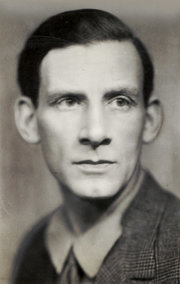By ALAN COWELLAUG. 1, 2014
Siegfried Sassoon
LONDON — He yearned for “a genuine taste of the horrors.” He never thought he would become a great poet, and if it were “not for mother and friends” he would pray for a “speedy death.” In a place of war, he wrote, “I never thought to find such peace.”
In just one page of handwritten notes from December 1915, Siegfried Sassoon, sometimes called the most innocent of Britain’s war poets, bared a soldier’s soul, writing in a leather-bound notebook from a flyspeck village called Bourecq in northern France, where his company was stationed in “stables dark and damp.”
“My inner life,” he wrote, “is far more real than the hideous realism of this land, the war zone.”
As of Friday, three days before the centenary of Britain’s declaration of war on Germany at the beginning of World War I, those musings have become public and made available online as part of a remarkable archive of 4,100 handwritten pages digitized by the Cambridge University Library Project.
Some of the notebooks still bear traces of mud from the battlefields, where Sassoon arrived in 1915. Some are stained with spilled wax, thought to be from candles, as he wrote at night. Their neat, handwritten pages — complete with revisions and excisions, sketches and even cricket scores in notebooks small enough to fit in a soldier’s tunic — transport readers back to an era of personal documentation long before the existence of Twitter, selfies or social media.

